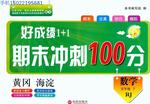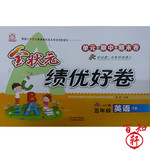题目内容
That morning, I stepped into the classroom, ready to share my knowledge and experience with seventy-five students who would be my English Literature class. Having taught in for seventeen years, I had no about my ability to hold their attention and to on them my admiration for the literature of my mother tongue.
I was shocked when the monitor shouted, " !" The entire class rose as I entered the room, and I was somewhat about how to get them to sit down again, but once that awkwardness was over, I quickly my calmness and began what I thought was a fact-packed lecture, sure to gain their respect—perhaps their admiration. I went back to my office with the rosy glow which came from a sense of achievement.
My students diaries. However, as I read them, the rosy glow was gradually 49 by a strong sense of sadness. The first diary said, "Our literature teacher didn’t teach us anything today. her next lecture will be better." Greatly surprised, I read diary after diary, each expressing a theme. "Didn’t I teach them anything? I described the entire philosophical framework of Western thought and laid the historical for all the works we’ll study in class," I complained." How they say I didn’t teach them anything?"
It was a long term, and it became clear that my ideas about education were not the same as of my students. I thought a teacher’s job was to raise questions and provide enough background so that students could their own conclusions. My students thought a teacher’s job was to provide information as directly and clearly as possible. What a difference!
, I also learned a lot, and my experience with my Chinese students has made me a American teacher, knowing how to teach in a different culture.
1.A. the UK B. the US C. China D. Australia
2.A. worry B. idea C. doubt D. experience
3.A. impress B. put C. leave D. fix
4.A. Attention B. Look out C. At ease D. Stand up
5.A. puzzled B. sure C. curious D. worried
6.A. found B. returned C. regained D. followed
7.A. more B. even C. yet D. still
8.A. passed B. borrowed C. read D. kept
9.A. replaced B. taken C. caught D. moved
10.A. Naturally B.Perhaps C. Fortunately D. Reasonably
11.A. different B. strong C. similar D. usual
12.A. happenings B. characters C. development D. background
13.A. should B. need C. will D. must
14.A. immediately B. certainly C. simply D. gradually
15.A. that B. what C. those D. ones
16.A. difficult B. interesting C. ordinary D. unusual
17.A. draw B. look C. search D. offer
18.A. strange B. standard C. exact D. serious
19.A. Therefore B. However C. Besides D. Though
20.A. normal B. happy C. good D. better
1.B
2.C
3.A
4.D
5.A
6.C
7.B
8.D
9.A
10.B
11.C
12.D
13.A
14.D
15.C
16.B
17.A
18.C
19.B
20.D
【解析】
试题分析:我是一名在美国教了17年书的教师,信心满满的来中国教书。却发现由于文化的差异,我的教育理念和学生们的并不同。在和中国学生在一起的日子,我学会了处在不同的文化背景下,如何去教学生
1.考查名词辨析。A:England英格兰;B:America 美国;C:china 中国;:D:Australia 澳大利亚。根据I also learned a lot, and my experience with my Chinese students has made me a better American teacher, knowing how to teach in a different culture,故选B。
2.2】考查名词辨析。A:worry 烦恼;B:idea 想法;C:doubt 怀疑;D:skill技巧。根据Having taught in the US for seventeen years,可知我并不怀疑我的能力,故选C。
3.3】考查名词辨析。A:profession 专业;B:admiration 钦佩;C:explanation解释;D:expression 表达。句意我对母语文学的赞赏给他们留下深刻的印象Impress on sb sth.此处指他确信能给学生留下深刻的印象,故选B。
4.4】考查动词辨析。A:attracted 吸引;B:embarrassed令人尴尬;C:amused 令人愉快的的;D:shocked震惊。句意 当我走进教室,当班长喊起立时我很震惊。根据下文出现的Once that awkwardness was over,当这种局促不安结束时,可推知当时作者是很震惊的,故选D。
5.5】考查形容词辨析。A:puzzled 迷惑的;B:sure 确定的;C:worried着急的;D:curious 好奇的。句意 当全班起立时,我不怎的,很迷惑,是如何让他们坐下,be puzzled about 对。。困惑,符合情景。故选A。
6.6】考查动词辨析。A:reminded 提醒;B:returned 返回;C:regained重新获得;D:recovered 恢复。but once that awkwardness was over提醒读者他开始见到那情景有点局促不安,到很快又重新获得平静calmness。所以Regain正确。故选C。
7.7】考查副词辨析。A:more 更多;B:even 甚至;C:yet然而;D:still仍然。句意当恢复平静后,我认为开始获得他们的尊敬甚至是敬佩。admiration是在respect基础上的递进,所以用even符合这一空,故选B。
8.8】考查名词辨析。A:discussion 讨论;B:notes 注意;C:compositions 作文;D:diaries日记。学生们写日记,我从中看出他们对我的看法 keep kiaries 记日记。故选D。
9.9】考查动词辨析。A:replaced 代替;B:frightened 害怕;C:troubled麻烦;D:moved移动。句意 读到学生的日记,原来萦绕在我心头的自我好感很快褪色了,取而代之的是悲伤。Be replaced by...被...取代,故选A。
10.10】考查副词辨析。A:later 后来B:perhaps 也许;C:somehow 不管怎么样;D:indeed确实、根据Our literature teacher didn’t teach us anything today以及her next lecture will be better学生对我的下一次课的一种期望,但也不肯定。Perhaps也许,是最佳答案。故选B。
11.1】考查形容词辨析。A:common 普通的;B:strong强壮的;C:similar 类似的;D:strange奇怪的。句意 每个同学都在日记中表达一个相似的想法,那就是他们没学到东西,或者一无所获。再根据Didn’t I teach them anything?可知他们表达得相似的主题。故选C。
12.2】考查名词辨析。A:happenings 事件;B:characters 性格;C:development发展;D:background背景。根据all the works we’ll study in class以及I thought a teacher’s job was to raise interesting questions and provide enough background,可知我为他们说明了我们课上所学的文学作品的历史背景,故选D。
13.3】考查情态动词辨析。A:should 应该;B:need需要;C:will 将要;D:must 必须。句意 他们怎么能说我什么都没教他们呢?should表示说话人惊奇、愤怒、失望等情感,与前面学生和我的相反反映是吻合的。故选A。
14.4】考查副词辨析。A:immediately 立刻地;B:certainly 必然;C:simply 仅仅;D:gradually 逐渐地。根据It was a long term以及my ideas about education were not the same as those of my students,可知我逐渐明白了,故选D。
15.5】考查名词辨析。A:admiration 钦佩;B:question 问题;C:education 教育;D:conclusion 结论。句意 我的教育理念和我的学生们不同,those 代替上文提到ideas 。故选C。
16.6】考查形容词辨析。A:difficult 困难的;B:interesting 有趣的;C:essential 必要的;D;general 普遍的。在我看来,教师的工作就是提出有趣的问题并提供必要的背景知识,然后学生通过思考得出自己的结论。要启迪学生思考,问题应该要有吸引力,故选B。
17.7】考查动词辨析。A:draw 绘制,拉,得出;B:find 发现;C:search寻找;D:offer提供。draw a conclusion得出结论,为固定搭配 句意 我认为教师的工作就是提出一个有趣的问题,提供足够的背景,然后让学生自己得出结论。故选A。
18.8】考查形容词辨析。A:special 特殊的;B:standard 标准;C:exact 确切的;D:serious 严重的。而我的中国学生的观念是,老师应该直接将确切地知识信息教给他们,不是去自己摸索。后文的as directly and clearly as possible是提示,故选C。
19.9】考查副词辨析。A:therefore 因此;B:however 然而;C:then然后;D:though虽然。虽然这中间我很纠结,但我也懂得了一些东西。这里有转折对比的意思。故选B。
20.20】考查形容词辨析。A:richer 富有的;B:happier幸福的;C:friendlier 友好的;D:better 好的。句意 我与我的中国学生的经历使我成为了一个更好的老师,一个知道在不同文化背景下如何教书的老师。根据knowing how to teach in a different culture。故选D。
考点 故事类短文。

 好成绩1加1期末冲刺100分系列答案
好成绩1加1期末冲刺100分系列答案 金状元绩优好卷系列答案
金状元绩优好卷系列答案